Graham Reid | | 11 min read
The Inkspots: That Cat is High (1938)
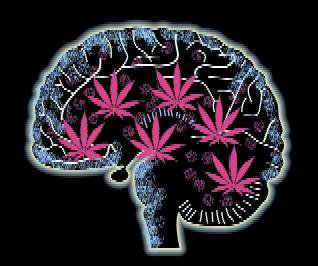
As the 21st century dawned there was considerable argument in New Zealand about whether marijuana should be decriminalist, a debate prompted by a Green MP Nandor Tanczos attempting to bring a bill before Parliamant along those lines. People took positions on the far ends of the spectrum.
As this happened I went to the editor of the New Zealand Herald where I was a feature writer and suggested an essay from the centre of the debate, written by someone who had frequently smoked marijuana but had also raised three children and never missed a mortgage payment. But also someone who could see that marijuana -- the use of which is endemic in New Zealand -- wasn't the benign drug that many made it out to be.
That person would be me.
What follows is what I wrote, for better or worse. The naivety of the first sentence makes me cringe a little (see here) but at a time when a generation of politicians who grew up in the late Sixties were running for cover or being evasive, and others were predicting the end of civilisation I think this essay sits fairly in the middle of a discussion as a reasonable voice.
It does however seem quaint now, given the scourge of methamphetamines which emerged within a few years of the writing.
(And incidentally, not long after this appeared in mid 2000, for no reason I can identify, I simply stopped smoking. I've probably had one joint in the past 15 years. Didn't like it much either. Ha!) . . . .
My friends and I were of the first generation lied to about marijuana. We were teens in the Sixties and were told it would lead to harder drugs, cause permanent psychological damage, we probably couldn't have children...
Such alarmism didn't have much effect. Puffing a joint and the fine time that followed was enough for us to make up our own minds.
As we suspected, the scaremongering proved, mostly, unfounded and certainly didn't make for intelligent discussion. Thirty years on there sometimes seems little more honesty in this important debate.
When a coroner links an Ecstasy death and marijuana law reform it clouds the issue, so to speak, and revives the same old scaremongering.
Columnists' witty but facile one-off pieces also prove neither insightful nor relevant to the more burning issues. Decriminalisation will have far-reaching social effects, so we could leave Nandor jokes behind.
And when the Prime Minister [Helen Clark] was asked the "have you ever?" question on television before the election, she offered that evasive innuendo-soaked response wearily familiar from my generation: Oh, anyone at university in those days ...
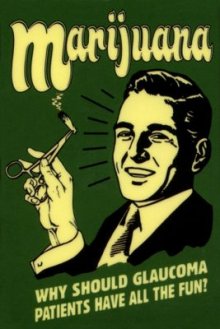 [Broadcaster] Paul Holmes offered much the same - "Like Helen Clark, I've seen it. I've lived" - in a New Zealand Woman's Weekly survey in January. In the same article [columnist/tv personality] Gary McCormick said he "didn't smoke - never have," but conceded when pushed that he'd tried it "maybe three times."
[Broadcaster] Paul Holmes offered much the same - "Like Helen Clark, I've seen it. I've lived" - in a New Zealand Woman's Weekly survey in January. In the same article [columnist/tv personality] Gary McCormick said he "didn't smoke - never have," but conceded when pushed that he'd tried it "maybe three times."
I find such disingenuous responses insulting and unhelpful in creating a climate for an honest, open debate. It is also frightening that many people today are as wary of publicly admitting to having smoked marijuana as they were a decade or two ago.
It's hard to believe the experience of former Department of Education psychologist Les Gray still has some resonance more than a decade after he was asked on Holmes whether he smoked marijuana and came back with that polite, witty rejoinder: "Yes, thank you Paul, I enjoy it."
For his candour - and one suspects his irreverent humour - he was busted by Whangarei police three days later. So much for open debate in 1989.
Perhaps behind the current evasiveness is still fear of an unwelcome knock at the door?
But there's also an implication behind the Clark/Holmes response that everyone at university at that time smoked.
I'm almost embarrassed to report where I was for two years, in sciences, there was precious little about. Science students - and experience tells me those doing economics, business studies and maths - mostly weren't into it.
To suggest marijuana use at university, let alone in greater society, was common is misleading.
Frankly, I'd prefer someone tell me straight whether they have done, or do, smoke. It clears the air, so to speak.
I smoke marijuana and have done since my late teens. My intake has varied: there have been years when I haven't smoked just as there have been periods, usually fairly brief, where I have probably smoked every day. These days I smoke a few times a week - and wasn't that Carmen a great show?
I don't banner this lightly but nor do I see any reason - other than now perhaps that unwelcome knock at my door - to deny it.
It would be dishonest to say it hasn't changed something about the way I have lived in this world, but neither has it prevented me from bringing up three sons of whom I am extremely proud, holding down responsible jobs, or made me miss a mortgage payment.
As with many smokers, I've lived a rather ordinary, responsible, middle-class life. It hasn't sent me on a career of bounced cheques and a shotgun in the ute. My psychology seems no more unbalanced than most, the family is fine and the chest x-rays are normal.
Why do I smoke marijuana? Because I enjoy it. That simple. I don't do it as some vague social or political statement. Nor are there religious or medical reasons, which seem unfortunate and intellectually limiting positions from which to conduct a debate.
I offer no higher motive or better rationale than I like the feeling. It's relaxing on a lazy Sunday, certainly makes television more interesting, and people doing it together generally have a very nice time. Thank you Paul, we enjoy it.
I wouldn't offer the cliche about "doctors and lawyers" because I know few socially. However, I've smoked with architects, librarians, fishermen, people on the cutting edge of IT, and a trauma surgeon. And with graphic designers, carpenters, teachers, a policeman, surfers and commercial salesmen as well as musicians, artists, unemployed people, writers, and friends from television and print journalism.
This isn't surprising. Over half the people between 15 and 45 years questioned for a 1998 survey by the Alcohol and Public Health Research Unit of the University of Auckland said they had tried marijuana. Not all of them at my house, I hasten to add.
However, I've also known people who developed a crippling psychological dependency on marijuana (fewer than have with alcohol or cigarettes) and one friend found it made him emotionally volatile. We were relieved when he quit.
I also met a school principal who considered marijuana the most damaging drug in the country. He may well be right.
Anyone who has had their eyes open has witnessed the cost of this drug which some characterise as harmless. It has ruined families and communities, and seen the market controlled by gangs.
So although a serial smoker I don't see decriminalisation as a simple issue. But already there's a troubling aspect to the discussion. Our frames of reference appear to be narrowing.
There are reports indicating how this country might follow the model South Australia adopted in 1987 and that their idea of instant fines is gaining acceptance here. But why haven't we heard as much about alternatives?
The South Australian model seems intellectually flawed. You decriminalise but hand out fines. Sorry, am I missing something here?
Evaluation research in South Australia has shown younger and disadvantaged people don't, or are unable, to pay fines. They get convictions. Back to square one, it seems.
Decriminalisation in South Australia hasn't increased consumption but, because police find it easier to write a ticket than make an arrest, the number of fines issued has increased. Police also appear to issue fines to those they'd previously let off with a warning.
Maybe that appeals to politicians but it looks suspiciously like revenue gathering.
The South Australian experience is a narrow premise from which to start a wide debate.
Allowing people to grow cannabis for personal use would diminish criminal involvement and seems sensible, but not everyone has the time, inclination or interest in growing their own. It's akin to homebrewing and, like many, I suspect, I've never been enthusiastic about most homebrews inflicted on me. Marijuana is of as varying quality as someone's basement brew and most smokers understandably prefer the best.
My preference would be to purchase cannabis derivatives (marijuana and hash) in much the same way we buy wine, from outlets offering quality and selection.
Because of that I'd like to hear more about the Dutch experience. There's also the amusing thought: if [explorer] Abel Tasman had stuck a flag in the ground here, we might have shops today selling marijuana where the cafes in the Viaduct Basin are.
In the Netherlands, "soft" drugs (marijuana and hash) are tolerated although remain officially illegal. The policy was designed to separate hard and soft drug-users.
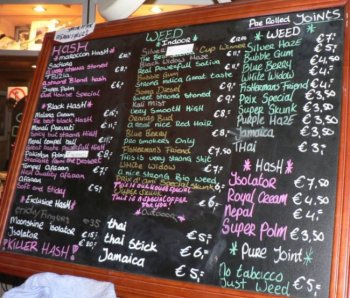 At this distance, it appears a complex social and legislative tango: trafficking, producing and selling are offences; using is not. And licensed outlets which sell cannabis derivatives, euphemistically referred to as "coffee shops," are allowed to exist.
At this distance, it appears a complex social and legislative tango: trafficking, producing and selling are offences; using is not. And licensed outlets which sell cannabis derivatives, euphemistically referred to as "coffee shops," are allowed to exist.
I've enjoyed sitting at an outdoor table at many of the clean, friendly coffee shops in Amsterdam smoking excellent hash and having a quiet beer. It just seems sensible and comfortable, if that's what you want to do. And few Dutch want to: the percentage of cannabis usage among adolescents is about half ours. Their estimated number of drug addicts per thousand of population is one of the lowest in Europe.
There are, of course, dissenting voices within the Dutch authorities and community and we should listen to them. But if there are problems, can't we analyse them and correct to suit local requirements?
If legislation banning smoking cigarettes in bars and restaurants is passed here, however, then maybe coffee shops will be the only place tobacco smoking is permitted. Next step, marijuana smokers demanding tobacco-free coffee shops to keep them separate from the more addictive drug?
Discussion here has shifted from considering marijuana a criminal issue to one of health. Again, that seems to be narrowing the parameters.
People these days who smoke a joint, cigarette or cigar are aware of the health risks. They've chosen to smoke anyway. Smoking certainly contains questions health professionals are best placed to answer, but decriminalisation is largely a social issue.
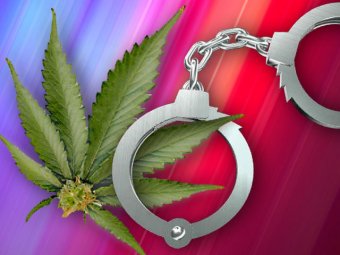 Under present legislation we have marginalised decent people, penalised others (my fine for the first-time offence for growing a few plants 18 months ago was $1000 to a charity), have turned some into career criminals and ignored the psychological damage to many.
Under present legislation we have marginalised decent people, penalised others (my fine for the first-time offence for growing a few plants 18 months ago was $1000 to a charity), have turned some into career criminals and ignored the psychological damage to many.
We've also allowed at least two generations of young people to slip sideways out of society when we've suspended or expelled otherwise promising, but maybe briefly wayward, kids from school.
For many years I taught at an Auckland suburban high school. Occasionally kids would turn up stoned. My attitude was: you can't smoke and study. If you want to smoke, stay at home or go to the movies. But at school we have more important things to do.
For some kids this was, briefly I'm pleased to say, permission to go to the movies. For most, because it was unequivocal and all most impressionable kids want are clear guidelines, it worked.
Maybe that was wrong. But to take the official course seemed an extreme response and made a small problem an unnecessarily large one. Suspensions or expulsions for marijuana certainly weren't something I wanted on my conscience.
I adopted a similar approach with my own children - all now adults - and I note they seldom smoke, and certainly much less than I did at their age. Perhaps, like the Dutch, they have been around it so much that the mystique simply isn't there. It became just another option like cigarettes and alcohol, something you can choose to do, or monitor yourself.
I don't recall ever smoking in front of my children when they were young. As with kids who would turn up to school stoned, it seemed pointless. If this is something you use to relax and enjoy, why do it when the kids are demanding to be fed or want to watch something on television you can't stand?
Caution and common sense around children in their formative years seems the most obvious approach. But then, I'm educated, white and middle-class. Other people see the world differently.
What I believe, however, is we now all need to talk about marijuana in a more open way. But sitting in a park smoking joints - as many people did on the recent International J-Day - adds nothing to intelligent debate. And speeches, however well intentioned, which are simply the reverse of what we were once told - that decriminalisation will be the panacea for our ills - are as much a lie as what my friends and I, and thousands of others before and since, have already heard.
Despite the number who say they have smoked marijuana, decriminalisation will not simply legitimise a status quo. It will have permanent social ramifications, so we have to get it right.
It requires intelligent, open-minded discussion by people with information, be it scientific or experiential. And we have to start by creating a climate where everyone, from the Prime Minister to pop stars and all shades of opinion, are free to say what they will without fear of reprisal or condemnation.
Otherwise we will be lying to our kids, and ourselves. Again.


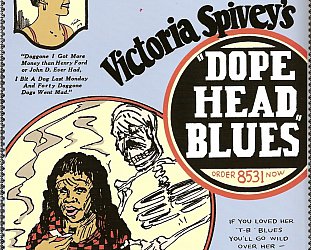


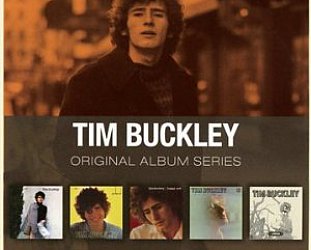
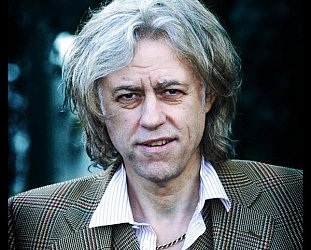
Graham H - Feb 8, 2017
I have known an Award winning Builder who Smoked Herb. .Oneday he was on the site when the Owner started to go on about Pot Smokers .. being lazy and hopeless so he said And what do you thing of the House My crew has built for you .? She Could not fault it .so he said well to be Honest 90% of the people who worked on your House are smokers and actually I Smoke as well. She was Shocked .he said it is the Drinkers that concern me .especially after pay day .they Don't turn up or are Crook when they do. but We are Good Workers .and Look into the detail of the finish .the house won House of the year award .. so that was Real Proof of the quality of the Job. i Enjoy a Smoke on occasions but am not Dependent on the herb. i Rarely drink alcohol. Well minimal amounts . live a healthy life ....
Savepost a comment